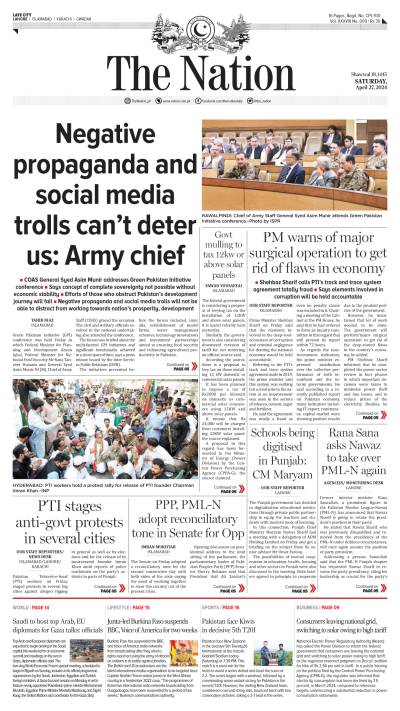WASHINGTON (AFP) - The commander of US and NATO forces in Afghanistan bitterly complained in an interview Sunday about the Pentagon bureaucracy that he said was hampering his efforts to fight insurgents. In a profile on CBS televisions 60 minutes, General Stanley McChrystal said he faced pressure to move quickly from Defence Secretary Robert Gates while the Pentagon had moved slowly to get officers assigned to his staff. The secretary talks in terms of 12 to 18 months to show a significant change and then we eat up two or three months just on sort of getting the tools out of the tool box, McChrystal said, according to a transcript of the show. That really hurts, said McChrystal, shown in a video conference with the Pentagon. The four-star army general, who was appointed to lead US and NATO forces in Afghanistan in June after the previous commander was sacked, demanded the Defence Department move with greater urgency. The average organisation, when someone asks when you want something, they pull out a calendar, he said. But in a good organisation, they look at their watch and we really got to get that way. McChrystal was slightly surprised by the strength of the insurgency when he took over his post, saying that conditions in Afghanistan are probably a little worse than he anticipated when taking the job. I think that in some areas that the breadth of violence, the geographic spread of violence - places to the north and to the west - are a little more than I would have gathered, he said. He also repeated his warning that if the NATO-led mission was perceived as an occupation that poses a threat to civilians, the war would be lost. If the people view us as occupiers and the enemy, we cant be successful and our casualties will go up dramatically, he said. McChrystal said 265 civilians had been killed by US or allied forces in the past 12 months, and said civilian casualties could make or break his strategy. I knew this was an important issue, but since Ive been here the last two and a half months, this civilian casualty issue is much more important than I even realised, he said. It is literally how we lose the war or in many ways how we win it. McChrystal added: We could do good things in Afghanistan for the next 100 years and fail, because were doing a lot of good things and it just doesnt add up to success. In a quarterly report released Saturday, United Nations Secretary-General Ban Ki-moon said 1,500 civilians had died between January and August, with August the deadliest month so far this year. Military officials have credited McChrystal with reducing civilian casualties in recent months by ordering a change in tactics, including scaling back the use of air strikes and artillery fire, as well as requiring soldiers to exercise more caution when driving on Afghan roads.
Saturday, April 27, 2024
McChrystal complains about US bureaucracy
Mohsin Naqvi orders crackdown on gangs involved in drugs business
4:12 PM | April 27, 2024
Electricity bills to surge as govt set to privatize Discos
4:11 PM | April 27, 2024
Court suspends Mahmood Khan Achakzai’s arrest warrants
3:57 PM | April 27, 2024
PM Shahbaz says Track & Trace system is nothing but a cruel joke
3:53 PM | April 27, 2024
Pakistan invites Canada to invest in energy, IT sectors
3:37 PM | April 27, 2024
Political Tightropes
April 27, 2024
Wave of Revolution
April 27, 2024
Brave Peacekeepers
April 27, 2024
Economic Challenges
April 26, 2024
No Compromise
April 26, 2024
Korangi’s challenge
April 27, 2024
US double standard
April 27, 2024
Political turmoil
April 27, 2024
Photon power
April 26, 2024
Justice prevails
April 26, 2024
ePaper - Nawaiwaqt
Advertisement
Nawaiwaqt Group | Copyright © 2024





